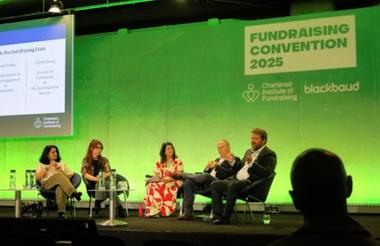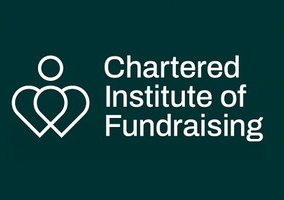Charities should “be brave” when it comes to launching an urgent fundraising campaign, a sector leader advised at an event yesterday.
Gareth Pierce, chief executive of Forget Me Not Children’s Hospice, said emergency campaigns can be beneficial but charities should consider how they announce them to staff and the public.
“Be brave, because sometimes it works and sometimes it gives you the outcomes that you need to ultimately protect the future of your organisation,” Pierce told delegates at the Chartered Institute of Fundraising’s annual Fundraising Convention in London.
“As soon as you press that big red button, your team will worry. Your team will panic, even if you say, ‘everything’s fine’.
“It’s a bit of a runaway train, and you have to trust that train that you’ve just got on. It’s very hard to control the narrative.”
Transparency with supporters
Pierce said charities should be transparent with the public and their supporters on why they are launching an urgent fundraising campaign.
His charity launched an urgent campaign in December last year to raise £1m due to rising staff and energy costs, as well as challenges raising money from various sources.
In April, the charity said it had raised £400,000 so far from the appeal and reduced costs.
“Say it well, say it once and say it to everybody, and that’s what we did,” he told the event yesterday.
“We didn’t send out different comms to different stakeholders. We created one document and we sent it out to everybody.
“We created something that was quite unique, I call it positive anger.”
Their supporters, donors and stakeholders had this anger in them, but it was not directed at his charity, Pierce said.
“It was anger at the injustice that we told people about, and they wanted us to succeed, to make sure that things got better in the future, he said.
“We saw anger and we saw frustration, but it was a positive momentum that carried us through a really difficult few months.”
Importance of innovation
Speaking on the same panel as Pierce, Sonya Trivedy, executive director of external engagement at Samaritans, urged charity leaders to allow fundraisers to innovate.
“If you’re a fundraiser, challenge your organisation. You do need to be innovating. We can’t stand still in this changing world.”
However, Trivedy said innovation “isn’t necessarily about that shiny new thing” and urged charities to look at their own data to see whether their ways of operating are working and whether they need to be changed.
Also on the panel, Michael Dent, executive director of supporter income and engagement at wildlife charity WWF-UK, urged fundraisers to keep their fundraising campaigns relevant to donors.
Dent said charities should find out which communication methods make their supporters “feel engaged in the mission” and find out why they are supporting the cause in the first place.
Considering staff wellbeing
Donna Young, director of fundraising at the Air Ambulance Service, said as part of the panel that it is also important for charities to check in with their fundraising team as they fundraise in an economically challenging climate.
“I thought a lot about the wellbeing of my team during the pandemic, but I hadn’t really thought too much about the wellbeing of my team in the cost-of-living crisis,” Young said. “I should have given it more thought.”
Young said the effect of the cost-of-living crisis on her staff became clear when the charity carried out a survey which showed that employees were worried about their own financial situations and felt “demotivated” in their work.
Since then, her team has created a team within its fundraising department to provide more support for each other and make sure that people’s voices are heard, she said.
“It’s been quite humbling for me to take it on the chin a bit,” she said.
“But it’s about asking the uncomfortable question, it’s one that I think you need to ask if you want to move forward.”
Related articles











